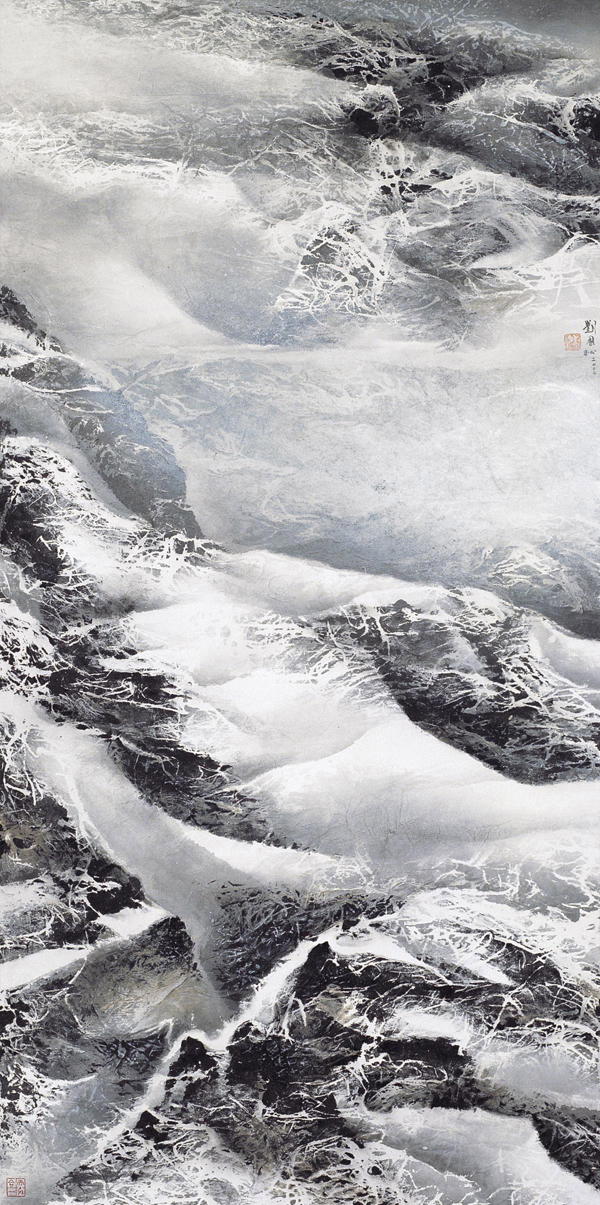ILLUSTRATED:
21st Century, Latest Works of Liu Kuo-sung, Chung Hua University Arts Center, Hsin-chu, 2006, color illustrated, p. 25
The Universe in the Mind - A Retrospective of Liu Kuo-sung, Cultural Affairs Bureay of Taoyuan County Government, Taoyuan, 2007, color illustrated, p. 71
Catalogue Note:
Liu Kuo-sung, well-known painter in Taiwan, known as the "Pioneer of modern painting in China" and "Father of modern ink painting" across the Taiwan Straits, advocated innovation in modern Chinese ink painting as early as in 1960s and presented the slogan of "Modernization of Chinese painting". In the artist's eyes, "The aspiration of art comes from creation, which means life and the universe. People feel it from inner heart and then express their feeling by drawing. However, our life is changing and our feeling is changing. This way, drawing is changing. Every famous painter in our history had his own invention. Actually, painting means many techniques. For example, Mi Fu drew with lotus seed pod, Fu Baoshi drew with chalina, whereas some others draw with finger only. Sticking to central tip of brush can only narrow the space of Chinese painting and push it to a dead end." He looks for any unprecedented, possible form for his artistic expression and is in search of maximum integration and breakthrough for the two-sided issue of the "modern" and "water ink". His achievements in the technical experimentation include the innovative ink rubbing and ink immersing for traditional Chinese ink painting, bringing white strips to Chinese painting and enriching the forms of expression by water. In the "Eager Mountains: Tibetan Cento XIII" , the image is condensed, transparent, and solid. The feeling of texture can never be presented by traditional techniques. The artist discards square-head brush in oil painting. He invents ink rubbing and ink immersing techniques as inspired by the traditional "Bug eating grain" and "Eaves grain" in the traditional Chinese painting techniques. This way, the image carries not only the skeleton of Chinese painting but also the texture feeling of Western oil painting.
